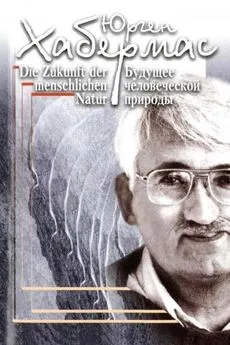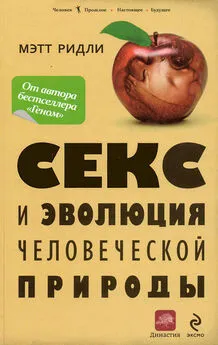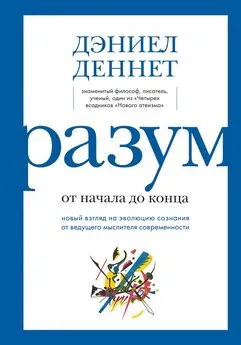Джеффри Миллер - Соблазняющий разум [Как выбор сексуального партнера повлиял на эволюцию человеческой природы] [litres]
- Название:Соблазняющий разум [Как выбор сексуального партнера повлиял на эволюцию человеческой природы] [litres]
- Автор:
- Жанр:
- Издательство:Литагент Corpus
- Год:2020
- Город:Москва
- ISBN:978-5-17-982778-8
- Рейтинг:
- Избранное:Добавить в избранное
-
Отзывы:
-
Ваша оценка:
Джеффри Миллер - Соблазняющий разум [Как выбор сексуального партнера повлиял на эволюцию человеческой природы] [litres] краткое содержание
Соблазняющий разум [Как выбор сексуального партнера повлиял на эволюцию человеческой природы] [litres] - читать онлайн бесплатно ознакомительный отрывок
Интервал:
Закладка:
Gould S. J. Freudian slip . Natural History. 1987; Feb.: 14–19.
Gould S. J., Eldredge N. Punctuated equilibria: The tempo and mode of evolution reconsidered . Paleobiology. 1977; 3: 115–151.
Gowaty P. A. (ed.). Feminism and evolutionary biology. New York: Chapman & Hall, 1997.
Grafen A. Biological signals as handicaps . Journal of Theoretical Biology. 1990; 144: 517–546.
Grammer K. Human courtship behavior: Biological basis and cognitive processing // A. E. Rasa et al. (eds.). The sociobiology of sexual and reproductive strategies. New York: Routledge, 1989.
Grammer K. Strangers meet: Laughter and nonverbal signs of interest in opposite-sex encounters . Journal of Nonverbal Behavior. 1991; 14(4): 209–236.
Grammer K., Thornhill R. Human facial attractiveness and sexual selection: The role of symmetry and averageness . Journal of Comparative Psychology. 1994; 108: 233–242.
Graziano W. G., Jensen-Campbell L. A., Todd M., Finch J. F. Interpersonal attraction from an evolutionary psychology perspective: Women’s reactions to dominant and prosocial men // J. A. Simpson & D. T. Kenrick (eds.). Evolutionary social psychology. Mahwah, NJ: Erlbaum, 1997.
Gregor T. Anxious pleasures: The sexual lives of an Amazonian people . University of Chicago Press, 1985.
Griffith S. C., Owens I. P. F., Burke T. Environmental determination ofa sexually selected trait. Nature. 1999; 400: 358–360.
Grosse E. The beginnings of art . New York, 1897.
Guilford T., Dawkins M. S. Receiver psychology and the evolution of animal signals . Animal Behavior. 1991; 42: 1–14.
Haldane J. B. S. The causes of evolution . London: Longman, Green, 1932.
Halpern D. Sex differences in cognitive abilities (2nd ed.). Hillsdale, NJ: Erlbaum, 1992.
Hamer D., Copeland P. Living with our genes . New York: Doubleday, 1998.
Hamilton W. D. Narrow roads of gene land . Oxford: W. H. Freeman, 1996.
Hamilton W. D., Axelrod R., Tanese R. Sexual reproduction as an adaptation to resist parasites (A review) . Proceedings of the National Academy of Sciences (USA). 1990; 87: 3566–3573.
Hamilton W. D., Zuk M. Heritable true fitness and bright birds: A role for parasites? Science. 1982; 218: 384–387.
Haraway D. Primate visions: Gender, race, and nature in the world of modern science . New York: Routledge, 1989.
Hare R. D. Without conscience: The disturbing world of the psychopaths among us. New York: Guilford Press, 1999.
Harris J. R. The nurture assumption . London: Bloomsbury, 1998.
Harvey P. H., Bradbury J. W. Sexual selection // J. R. Krebs & N. B. Davies (eds.). Behavioral ecology: An evolutionary approach (3rd ed.). London: Blackwell Scientific, 1993.
Harvey P. H., Harcourt A. H. Sperm competition, testes size, and breeding systems in primates // R. Smith (ed.). Sperm competition and the evolution of animal mating systems. New York: Academic Press, 1984.
Hasselquist D., Bensch S., von Schantz T. Correlation between male song repertoire, extra-pair paternity and offspring survival in the great reed warbler . Nature. 1996; 381: 229–232.
Hasson O. The role of amplifiers in sexual selection: An integration of the amplifying and Fisherian mechanisms . Evolutionary Ecology. 1990; 4: 277–289.
Hatfield E., Rapson R. L. Love and sex: Cross-cultural perspectives . Boston: Allyn & Bacon, 1996.
Hauser M. The evolution of communication . Cambridge, MA: Harvard University Press, 1996.
Hausman C. R. Charles S. Peirce’s evolutionary philosophy . Cambridge University Press, 1997.
Haviland W. A. Cultural anthropology (8th ed.). New York: Harcourt Brace Jovanovich, 1996.
Hawkes K. Showing off: Tests of another hypothesis about men’s foraging goals . Ethology and Sociobiology. 1991; 12: 29–54.
Hawkes K. Why hunter-gatherers work: An ancient version of the problem of public goods . Current Anthropology. 1993; 34: 341–361.
Hersey G. L. The evolution of allure: Art and sexual selection from Aphrodite to the Incredible Hulk . Cambridge, MA: MIT Press, 1996.
Hewlett B. S. (ed.). Father-child relations . New York: Aldine de Gruyter, 1992.
Higgins K. M. (ed.). Aesthetics in perspective . New York: Harcourt Brace, 1996.
Hilgard E. R. Psychology in America: A historical survey . New York: Harcourt Brace Jovanovich, 1987.
Hill K., Hurtado A. M. Ache life history: The ecology and demography of a foraging people . New York: Aldine de Gruyter, 1996.
Hinde R. Why gods persist: A scientific approach to religion . London: Routledge, 1999.
Hirschfeld L. A., Gelman S. Mapping the mind: Domain specificity in cognition and culture . Cambridge University Press, 1994.
Hoelzer G. A. The good parent process of sexual selection . Animal Behavior. 1989; 38(6): 1067–1078.
Hofstadter D. Fluid concepts and creative analogies . New York: Basic Books, 1995.
Houle D. How should we explain variation in the genetic variabilities of traits? Genetica. 1998; 102/103: 241–253.
Houle D. Is there a g factor for fitness? // J. Goode (ed.). The nature of intelligence. New York: John Wiley, 2000.
Houle D., Hoffmaster D., Assimacopolous S., Charlesworth B. The genomic mutation rate for fitness in Drosophila . Nature. 1992; 359: 58–60.
Houle D. et al. The effects of spontaneous mutation on quantitative traits. I. Variances and covariances of life history traits . Genetics. 1994; 138: 773–785.
Howard D. J., Berlocher S. H. (eds.). Endless forms: Species and speciation . Oxford University Press, 1998.
Hrdy S. B. The woman that never evolved . Cambridge, MA: Harvard University Press, 1981.
Hrdy S. B. Raising Darwin’s consciousness: Female sexuality and the prehominid origins of patriarchy . Human Nature. 1997; 8: 1–50.
Hrdy S. B. Mother nature: A history of mothers, infants, and natural selection . New York: Pantheon, 1999.
Humphrey N. The social function of intellect // P. P. G. Bateson & R. A. Hinde (eds.). Growing points in ethology. Cambridge University Press, 1976.
Humphrey N. A history of the mind . New York: Simon & Schuster, 1992.
Hurford J., Studdert-Kennedy M., Knight C. (eds.). Approaches to the evolution of language . Cambridge University Press, 1998.
Huxley J. S. The present standing of the theory of sexual selection // G. R. de Beer (ed.). Evolution: Essays on aspects of evolutionary biology. Oxford: Clarendon Press, 1938a.
Huxley J. S. Darwin’s theory of sexual selection and the data subsumed by it, in the light of recent research . American Naturalist. 1938b; 72: 416–433.
Huxley J. S. Evolution: The Modern Synthesis . New York: Harper, 1942.
Huxley T. H. Evolution and ethics . Princeton University Press, 1989. (First published 1894.)
Illouz E. Consuming the romantic utopia: Love and the cultural contradictions of capitalism . Berkeley: University of California Press, 1997.
Iwasa Y., Pomiankowski A. Continual change in mate preferences . Nature. 1995; 377: 420–422.
Iwasa Y., Pomiankowski A., Nee S. The evolution of costly mate preferences. II. The “handicap” principle. Evolution . 1991; 45: 1431–1442.
Jacobs L. F. Sexual selection and the brain . Trends in Ecology and Evolution. 1996; 11(2): 82–86.
Jankowiak W. (ed.). Romantic passion: A universal experience? New York: Columbia University Press, 1995.
Jensen A. The g factor: The science of mental ability . London: Praeger, 1998.
Jensen-Campbell L. A., Graziano W. G., West S. Dominance, prosocial orientation, and female preferences: Do nice guys really finish last? Journal of Personality and Social Psychology. 1995; 68: 427–440.
Jerison H. J. Evolution of the brain and intelligence . New York: Academic Press, 1973.
Jerison H. J., Jerison I. (eds.). Intelligence and evolutionary biology . New York: Springer-Verlag, 1988.
Johanson D. C., Edgar B. From Lucy to language . London: Weidenfeld & Nicholson, 1996.
Johanson D. C., O’Farrell K. Journey from the dawn: Life with the world’s first family . New York: Villard Books, 1990.
Johnstone R. A. Sexual selection, honest advertisement and the handicap principle . Biological Review. 1995; 70: 1–65.
Johnstone R. A. The tactics of mutual mate choice and competitive search . Behavioral Ecology and Sociobiology. 1997; 40(1): 51–59.
Johnstone R. A., Reynolds J. D., Deutsch J. C. Mutual mate choice and sex differences in choosiness . Evolution. 1996; 50: 1382–1391.
Jones I. L., Hunter F. M. Mutual sexual selection in a monogamous seabird . Nature. 1993; 36: 238–239.
Jones S., Martin R., Pilbeam D. (eds.). The Cambridge encyclopedia of human evolution . New York: Cambridge University Press, 1992.
Kagel J. H., Roth A. E. The handbook of experimental economics . Princeton University Press, 1995.
Kahane H. Contract ethics: Evolutionary biology and the moral sentiments . London: Rowman & Littlefield, 1995.
Kalick S. M., Johnson R. B., Lebrowitz L. A., Langlois J. H. Does human facial attractiveness honestly advertise health? Longitudinal data on an evolutionary question . Psychological Science. 1998; 9(1): 8–13.
Keller E. F., Lloyd E. A. (eds.). Keywords in evolutionary biology . Cambridge, MA: Harvard University Press, 1992.
Keller M. C., Theissen D., Young R. K. Mate assortment in dating and married couples . Personality and Individual Differences. 1996; 21: 217–221.
Kenrick D. T., Keefe R. C. Age preferences in mates reflects sex differences in reproductive strategies . Behavioral and Brain Sciences. 1992; 15: 75–133.
Kenrick D. T., Sadalla E. K., Groth G., Trost M. R. Evolution, traits, and the stages of human courtship: Qualifying the parental investment model . Journal of Personality. 1990; 58: 97–116.
Kingdon J. Self-made man and his undoing . New York: Simon & Schuster, 1993.
Kirkpatrick M. Sexual selection and the evolution of female choice . Evolution. 1982; 36: 1–12.
Kirkpatrick M., Price T., Arnold S. J. The Darwin-Fisher theory of sexual selection in monogamous birds . Evolution. 1990; 44(1): 180–193.
Kirkpatrick M., Ryan M. J. The evolution of mating preferences and the paradox of the lek . Nature. 1991; 350: 33–38.
Knight C. Blood relations: Menstruation and the origins of culture . New Haven, CT: Yale University Press, 1995.
Knight C. Ritual/speech coevolution: A solution to the problem of deception // J. Hurford et al. (eds.). Approaches to the evolution of language. Cambridge University Press, 1998.
Knight C., Power C., Watts I. The human symbolic revolution: A Darwinian account . Cambridge Archaeological Journal. 1995; 5: 75–114.
Koestler A. The act of creation . New York: Dell, 1964.
Köhler W. The mentality of apes . New York: Harcourt, Brace, & World, 1925.
Kohn M. As we know it: Coming to terms with an evolved mind. London: Granta, 1999.
Kohn M., Mithen S. Handaxes: Products of sexual selection? Antiquity. 1999; 73: 518–526.
Читать дальшеИнтервал:
Закладка:
![Обложка книги Джеффри Миллер - Соблазняющий разум [Как выбор сексуального партнера повлиял на эволюцию человеческой природы] [litres]](/books/1070954/dzheffri-miller-soblaznyayuchij-razum-kak-vybor-seksu.webp)









